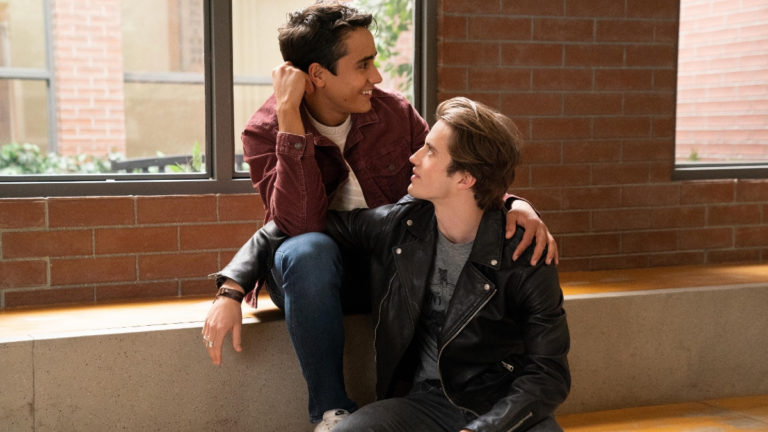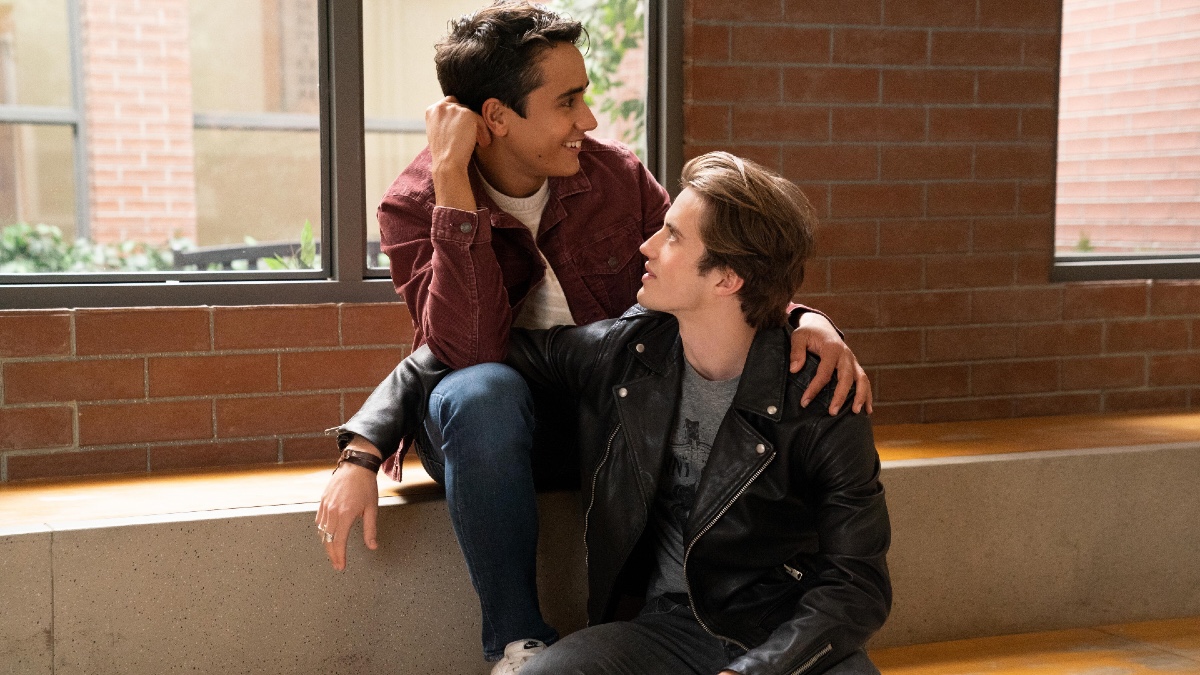

There are many stereotypes in media about what it means to be gay, and too often they depict a white, upper-middle class character with family and friends who have no qualms about queerness. The happy-go-lucky approach does not show outsiders just how tumultuous and heartbreaking it often is to grapple with being non-straight. Love, Victor engages the viewer and invites them to learn about a wide variety of LGBTQ struggles. Victor is Latino, lower-middle class, Catholic, and dealing with the upsides and downsides of being a gay man who skews more masculine than feminine.
Victor has internalized homophobia throughout the first season, taking awhile to figure out that it is indeed okay to like men, no matter what his conservative Latinx parents have taught him in the past. When he reveals his sexuality to his mom and dad in the second season, the audience is treated to the juxtaposition of the parents’ differing reactions. Victor’s father has an easy time putting his love for his son ahead of his ingrained value system; Victor’s mother has a much harder time grappling with whether to put her religion or her son first, but the payoff in that journey is something to behold (and will make you cry). This decision from the writers gives the show a way to relate to the widest array of watchers in the target audience, and shows that love can trump bigotry if you have a decent heart and adore your family.
Arguably the most tasteful analysis the show pulls off is its depiction of the limbo you are placed in as a gay person, particularly a gay man, where you are stuck between two different worlds based off of your gender expressions. Victor is traditionally masculine, one of the stars of his high school basketball team, yet his teammates feel uncomfortable with him in the locker room. For those who think this type of homophobia is an outdated trope, take a peek at any of the comments on social media at the beginning of Pride celebrations when any male sports teams lend their support to the equality movement. To a sizable portion of the population, being gay is still synonamous with being less masculine, and Victor feels the pain of his being outcasted from the guys he hoops with in a very raw way.
He then quits the team in the third episode of the second season, only to be poked fun of for being a “former, straight-acting jock” by his boyfriend’s gay friends. In one of the most revelatory lines in the whole series, Victor asks his teammate Andrew (played by Mason Gooding), an eventual ally, what is the perfect amount of gay to satisfy everyone? Too gay to play sports and not gay enough to hang out with more traditionally queer folk, where exactly is he supposed to turn to find his true family? This question is the most daring one that Love, Victor asks of its audience. The show expects you to examine your own opinions on gender norms and expressions regardless of sexual orientation, and teaches everyone that there is no one way to structure your identity. Victor as a character is a canvas for a myriad of interests and personalities, demonstrating the diversity of the Western LGBTQ+ experience.
This variety is also dissected in what is likely to be the most controversial storyline of the latter half of season 2, when new character Rahim (played by Anthony Keyvan), a closeted classmate of Victor’s, reaches out for some support. As Victor’s relationship with Benji (played by George Sear) starts to go awry, Rahim becomes a confidant, a close friend, and possibly something much more than that. The love triangle that develops as the finale closes will irk many viewers, but that might be in line with the writers’ intentions.
Benji represents many of the privileges that exist in pop culture with gay men: white, rich, and possessing socially liberal parents, he doesn’t fully understand many of the hardships in Victor’s life. On the other hand, Rahim is an Iranian Muslim, with enough flamboyance to match well with much of Victor’s traditional machismo. They are kindred spirits in many ways, and all of their different gayness meshes in a way that is aptly described by Rahim as “magical”. Comparing and contrasting a mixed race relationship (white person with a racial-minority person) with one where both parties are non-white gives the audience a lot to chew on. All of the intricacies of race, gender expression, and sexuality intertwine when Victor and Rahim are together, forcing the narrative to dig deeper and making the show something truly special.